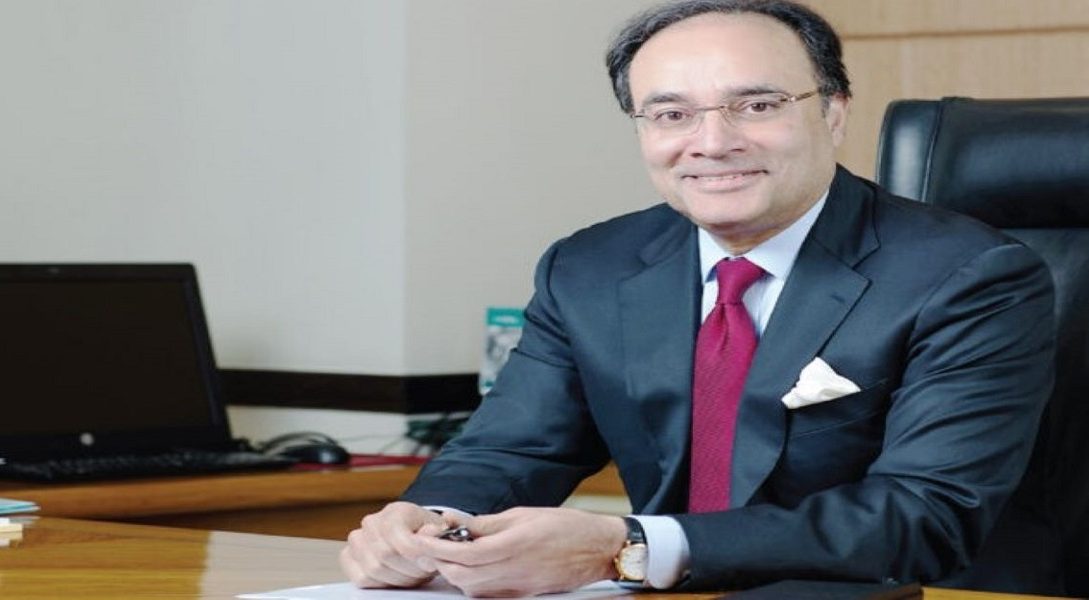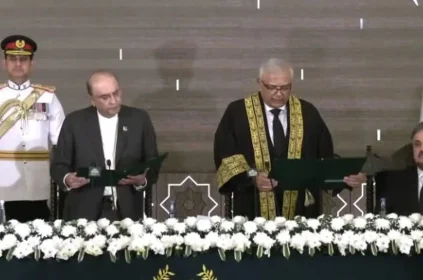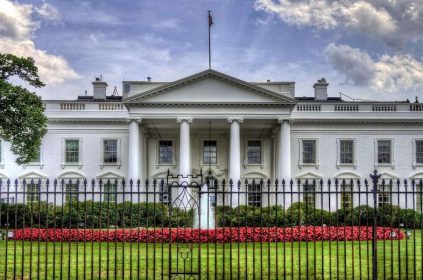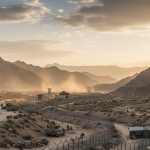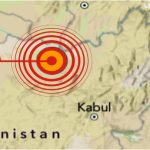ECONOMIC NEWS
ISLAMABAD: Federal Minister for Finance and Revenue, Muhammad Aurangzeb, has called Pakistan’s blue economy a potential “game changer” for the country’s future, envisioning its expansion to a $100 billion sector by the year 2047.
Speaking virtually as the chief guest at the opening session of the Pakistan International Maritime Expo & Conference (PIMEC) in Karachi, Aurangzeb reaffirmed the government’s commitment to ensuring policy stability, promoting investment, and advancing sustainable maritime growth.
The minister lauded the Pakistan Navy, the Ministry of Maritime Affairs, and the National Institute of Maritime Affairs for hosting what he described as a “world-class” event. He said the blue economy holds “tremendous potential to reshape Pakistan’s economic destiny.”
Aurangzeb, who could not attend the conference in person due to official duties in Islamabad, extended greetings to the delegates, speakers, and participants, emphasizing the significance of the event for the nation’s economic agenda.
Highlighting Pakistan’s recent macroeconomic improvements, the finance minister noted that the exchange rate has remained steady while foreign reserves have surpassed $14 billion—enough to cover more than two and a half months of imports. He said inflation, though briefly affected by this year’s floods, remains in single digits, and the policy rate has eased in response to declining inflationary pressures.
He added that Pakistan’s outlook has been upgraded to “stable” by major international rating agencies after nearly three years, reflecting renewed confidence in the country’s economic direction.
Referring to the recent staff-level agreement with the International Monetary Fund (IMF) in Washington, Aurangzeb said the development has further bolstered global trust in Pakistan’s economic reforms and governance framework.
He emphasized that the country is now in a strong position to deepen partnerships with key allies such as China, the United States, Saudi Arabia, and the United Arab Emirates. According to him, Pakistan aims to move from government-to-government collaboration toward greater private-sector-led trade and investment, which would drive long-term, sustainable growth.
Turning to maritime affairs, the minister pointed out that the sector currently accounts for just 0.4 to 0.5 percent of GDP—roughly $1 billion—but possesses immense untapped potential. He endorsed the Ministry of Maritime Affairs’ strategy to expand this to a $100 billion blue economy by 2047, aligning with Pakistan’s centenary and its vision of becoming a $3 trillion economy.
Aurangzeb described the target as “ambitious yet achievable,” supported by a detailed policy roadmap.
He identified fisheries and aquaculture as key growth areas, stressing the importance of improving value-added processing, cold storage, and hygiene standards to meet international benchmarks. Under the National Fisheries and Aquaculture Policy, formulated with support from the Food and Agriculture Organization (FAO), seafood exports could rise from $500 million to $2 billion within the next three to four years, he said.
The minister assured stakeholders of the government’s commitment to policy continuity and effective implementation of these initiatives.
He also underlined the need to modernize and digitize the country’s major ports—Karachi, Port Qasim, and Gwadar—bringing them in line with international best practices to enhance regional connectivity and trade efficiency.
Aurangzeb further highlighted renewable energy opportunities such as tidal and offshore wind power, and encouraged exploring innovative financing tools like blue bonds and blended finance to promote sustainable maritime projects.
He said marine biotechnology and regional cooperation could open new frontiers of economic growth and integrate blue economy principles into Pakistan’s broader development strategy.
Calling the blue economy a “transformative force,” Aurangzeb compared its long-term potential to that of emerging sectors like artificial intelligence, digital infrastructure, and mineral exploration. He added that it could play a defining role in shaping akistan’s sustainable growth path.
Concluding his remarks, the finance minister thanked the organizers for their efforts and expressed optimism that PIMEC’s discussions would provide valuable insights to advance Pakistan’s maritime and economic goals.\


